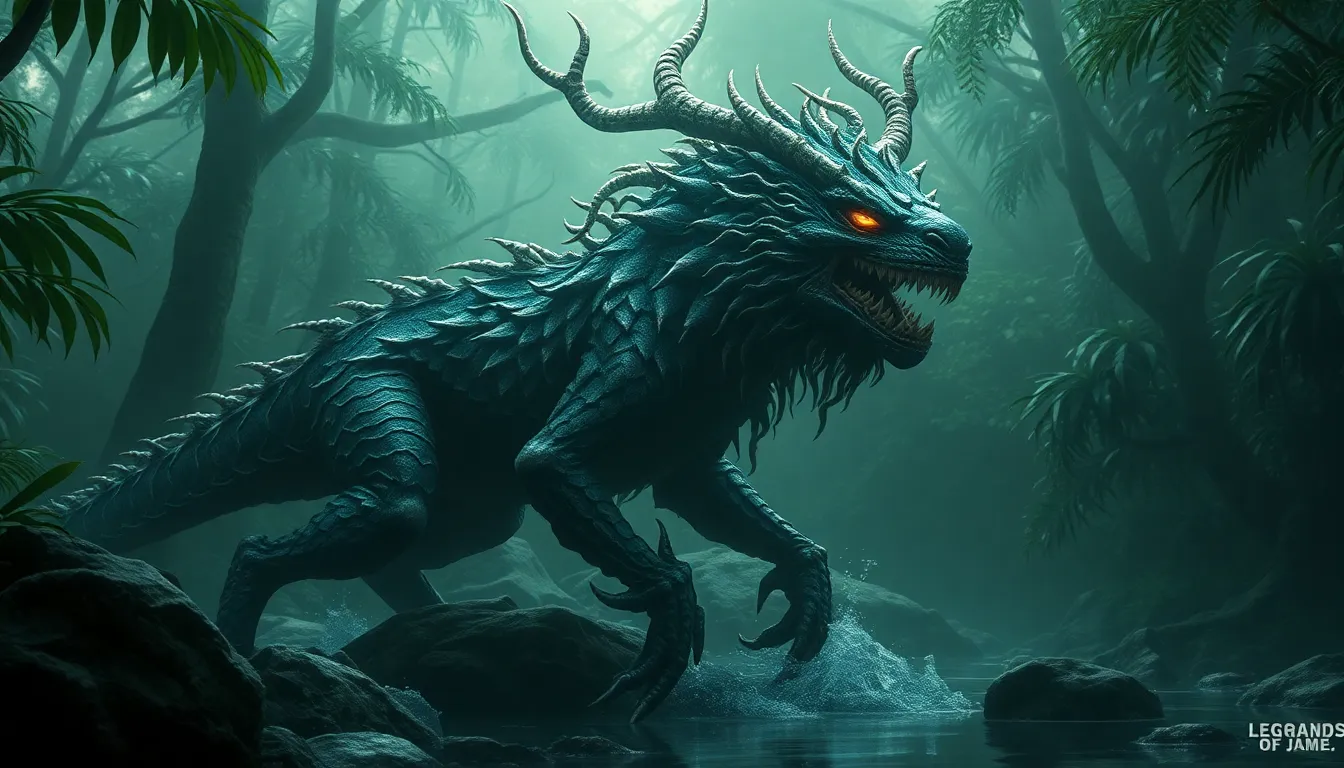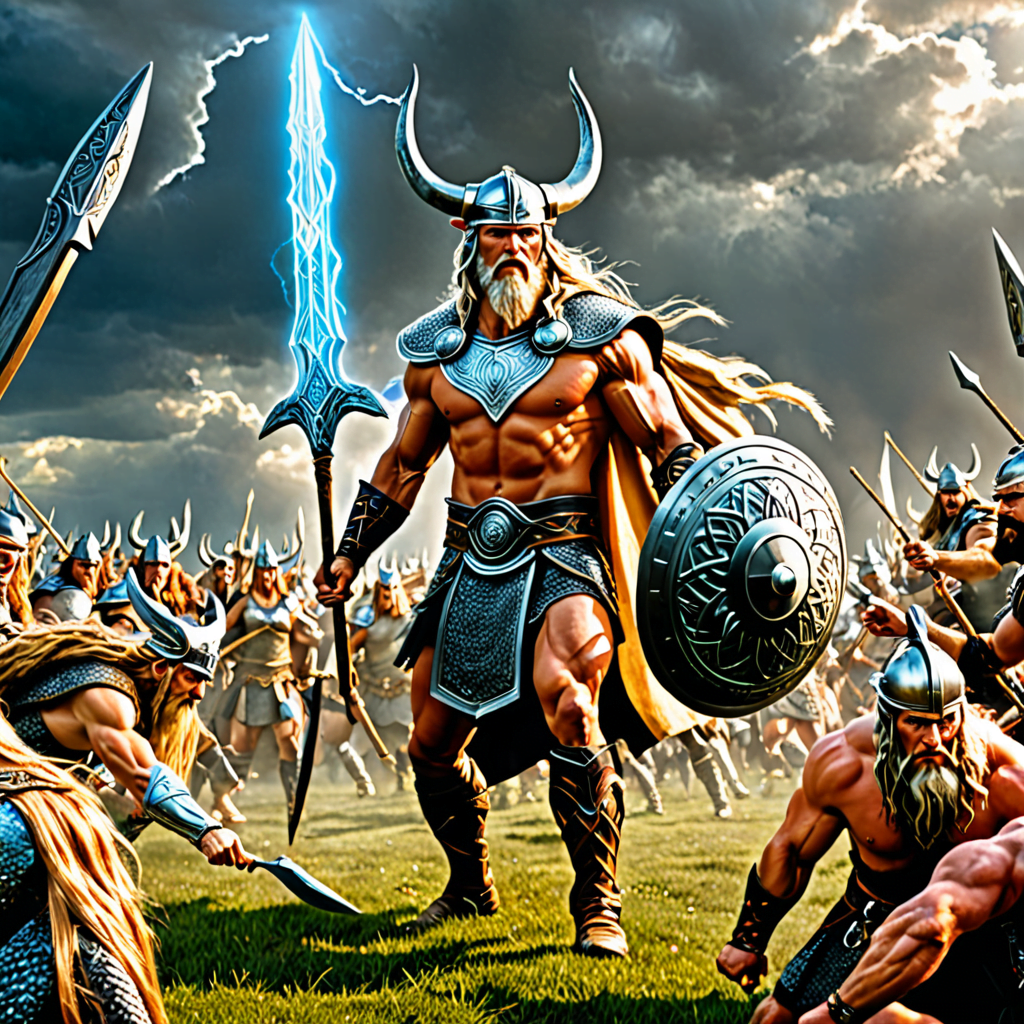The Great Cosmic Story: How Myths Explain Our Origins
Introduction: The Significance of Myths in Human Culture
Myths have long served as a fundamental component of human culture, acting as narratives that shape our understanding of the world and our place within it. Defined broadly, myths are traditional stories that convey beliefs, values, and explanations about the universe, humanity, and the divine. They have been instrumental in providing coherent frameworks for societies to interpret natural phenomena, human behavior, and existential questions.
Across cultures and epochs, myths have been employed to explain origins, addressing profound questions concerning the creation of the cosmos, the emergence of life, and the nature of existence. By weaving together elements of history, spirituality, and philosophy, these stories resonate deeply with human experience, offering insights that remain relevant even in contemporary discussions about science and the cosmos.
The Nature of Cosmic Myths: Bridging Science and Spirituality
Cosmic myths are a unique category of mythological narratives that specifically deal with the origins of the universe and the nature of existence. Unlike other myths that may focus on specific events or figures, cosmic myths encompass grand narratives that often attempt to explain the cosmos, its structure, and the divine forces that may govern it.
This intersection of mythology and cosmology creates a fascinating dialogue between science and spirituality. Where scientific theories, such as the Big Bang, provide empirical explanations for the universe’s origins, cosmic myths offer existential meanings, infusing the cold facts of science with warmth and purpose. They challenge us to ponder questions that lie beyond the reach of empirical inquiry, such as the meaning of life and our place in the universe.
The Big Bang and Creation Myths: Parallels and Divergences
The Big Bang Theory stands as the prevailing scientific explanation for the origins of the universe. It posits that approximately 13.8 billion years ago, the universe expanded from an extremely hot and dense state, leading to the formation of galaxies, stars, and planets. This scientific narrative provides a chronological account of cosmic evolution based on observable phenomena.
In contrast, various creation myths from different cultures offer rich, symbolic interpretations of the universe’s origins:
- Genesis (Judeo-Christian): The Book of Genesis describes God creating the world in six days, culminating in the creation of humanity in His image.
- Hindu Creation Story: In Hinduism, the universe is created through the cosmic sacrifice of the primordial being, Purusha, whose body becomes the cosmos.
- Chinese Mythology: The myth of Pangu depicts the giant Pangu who, after creating the world by separating heaven and earth, became the elements of nature upon his death.
While the Big Bang provides a scientific framework, these creation myths offer profound insights into the human psyche and the cultural values of the societies that birthed them.
Cultural Perspectives on the Origin of Humanity
Myths explaining human origins reveal much about the values and beliefs of different cultures. The Adam and Eve narrative from the Judeo-Christian tradition presents humanity’s beginnings in a garden paradise, emphasizing themes of innocence, temptation, and the consequences of disobedience.
In contrast, many Indigenous creation stories reflect a deep connection to nature and community. For instance:
- Aboriginal Australian Dreamtime: This mythos describes ancestral beings creating the land, animals, and people, embedding a sense of stewardship towards nature.
- Native American Myths: Various tribes have unique stories that often involve the Earth being created from the remnants of a great flood or the sacrifice of a deity.
These narratives not only explain human origins but also underscore the relationship between humanity and the world, illustrating how cultural values shape our understanding of existence.
The Role of Deities in Cosmic Myths
Deities often play central roles in cosmic myths, symbolizing the forces that govern creation. In many traditions, gods and goddesses embody natural elements, moral values, and existential concepts. For example:
- Chaos (Greek Mythology): Often seen as the primordial void, Chaos gave rise to the first gods, highlighting the transition from nothingness to order.
- Gaia (Greek Mythology): As the Earth goddess, Gaia represents fertility and the nurturing aspect of creation, symbolizing life itself.
- Vishnu (Hinduism): In Hindu cosmology, Vishnu is the preserver who maintains cosmic order, often incarnating in various forms to restore balance.
These deities serve not only as creators but also as moral exemplars, guiding humanity in its relationship with the cosmos.
Myths of Transformation: The Evolution of Life and the Universe
Many myths address the theme of transformation, depicting the universe and life forms as undergoing cycles of creation, destruction, and renewal. This cyclical view of time is prevalent in various cultures:
- The Phoenix Myth: The Phoenix, a mythical bird that rises from its ashes, symbolizes rebirth and the eternal cycle of life and death.
- Hindu Concepts: Hindu cosmology embraces cycles of creation (Srishti) and destruction (Pralaya), reflecting an understanding of time as non-linear and cyclical.
These narratives emphasize the interconnectedness of life and the universe, suggesting that endings are merely beginnings in a larger cosmic cycle.
The Human Quest for Meaning: Myths as Psychological Archetypes
Carl Jung’s concept of archetypes provides a profound lens through which to understand cosmic myths. Archetypes are universal symbols and themes that resonate within the collective unconscious, shaping human experiences across cultures and time. Cosmic myths often embody these archetypes, fulfilling psychological and existential needs:
- The Hero’s Journey: Many myths depict heroes embarking on quests that mirror our own journeys for meaning and understanding.
- Creation and Destruction: The duality of creation and destruction reflects our struggles with chaos and the search for order in our lives.
By engaging with these myths, individuals can find solace and insight into their own existence and the human condition.
Modern Interpretations of Ancient Myths
In contemporary society, ancient myths continue to resonate, finding new interpretations in various fields. Thinkers and scientists often draw parallels between ancient narratives and modern scientific discoveries:
- Literature: Modern storytelling frequently incorporates mythological elements, creating rich narratives that explore timeless themes.
- Pop Culture: Films, television shows, and video games often reference or adapt myths, making them accessible to new generations.
These interpretations breathe new life into ancient stories, demonstrating their enduring relevance and ability to address contemporary issues.
The Future of Myths in Explaining Our Place in the Universe
As our understanding of the cosmos and human origins continues to evolve, so too will our myths. Future discoveries in cosmology, anthropology, and related fields may reshape our understanding of existence, prompting the creation of new myths that speak to emerging knowledge. The potential for new narratives to emerge in response to scientific advancements offers exciting possibilities for the continued evolution of human thought.
Conclusion: The Enduring Power of Myths in Understanding Our Origins
In summary, myths serve as powerful narratives that help humanity grapple with profound questions about existence, creation, and our place in the universe. From the cosmic stories that bridge science and spirituality to the cultural narratives that reflect societal values, myths continue to provide insights that resonate deeply with our experiences. As we navigate an ever-changing world, the enduring power of myths remains a vital part of our quest for understanding, meaning, and connection with the cosmos.



